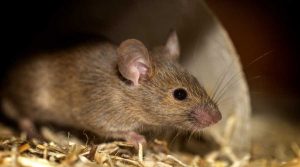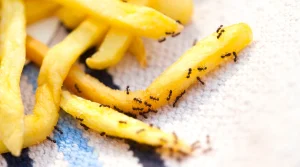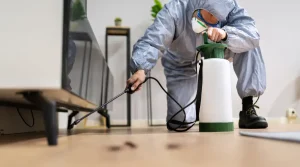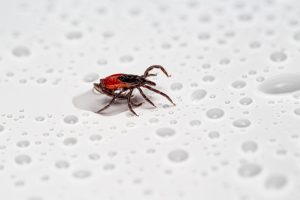Pests can make your home and garden a headache, but prevention is key to maintaining a serene and thriving environment. Use these expert tips to keep unwanted critters at bay and protect your space.
Key Takeaways
- Seal & Secure: Prevent pests indoors by sealing entry points and maintaining a clean, decluttered home.
- Eliminate Attractants: Remove food sources, fix leaks, and tidy outdoor areas to deter pests.
- Garden Safeguards: Use companion planting, crop rotation, and natural predators to keep your garden pest-free.
- Natural Solutions: Opt for organic pest control methods like neem oil, diatomaceous earth, and essential oils.
Preventing Pests in Your Home
1. Seal Entry Points
Inspect your home for gaps around windows, doors, and walls. Use caulk or weather stripping to close these openings and block entry. Pay extra attention to vents, utility pipes, and chimneys.
2. Eliminate Food Sources
Pests are drawn to easily accessible food. Keep your kitchen spotless, store food in airtight containers, and regularly empty the trash. Also, remember to wipe down countertops and sweep up crumbs.
3. Declutter
Clutter provides hiding spots for pests. Organize storage spaces like basements, closets, and attics. Dispose of unused items and maintain regular cleaning schedules.
4. Fix Leaks
Moisture attracts pests like cockroaches and silverfish. Repair leaky pipes, clear blocked drains, and ensure good ventilation in damp areas like bathrooms and basements.
5. Routine Maintenance
Regular upkeep deters pests. Trim shrubs near your house, clean gutters, and remove yard debris. Keep firewood stored away from the home’s foundation.
6. Use Natural Deterrents
Introduce pest-repelling plants like lavender, mint, and marigolds around your home. When applied strategically, essential oils such as eucalyptus and citronella can also deter insects.
Controlling Pests in Your Garden
Companion Planting
Pair plants to maximize natural pest resistance. For instance, basil planted near tomatoes wards off aphids and hornworms, while marigolds deter nematodes.
Crop Rotation
Rotating crops interrupts pest lifecycles, preventing recurring infestations. Plan your planting schedule to reduce soil-borne diseases.
Mulch for Defense
Mulching helps suppress weeds, retain soil moisture, and act as a barrier against pests like slugs. Organic mulches enrich the soil as they decompose.
Handpicking
Manually remove pests like caterpillars, beetles, or slugs. Regular inspection ensures early intervention before infestations grow.
Encourage Beneficial Insects
Attract ladybugs, lacewings, and praying mantises to naturally control pests. A pollinator-friendly garden supports biodiversity and helps maintain balance.
Organic Pest Control
Neem oil, insecticidal soap, and diatomaceous earth are effective organic solutions. These methods minimize harm to beneficial insects and the environment.
12 Steps to Naturally Prevent Garden Pests
- Select Pest-Resistant Varieties: Choose plants bred for resistance to local pests.
- Clean the Garden: Remove debris, fallen leaves, and weeds where pests can hide.
- Space Plants Properly: Adequate spacing reduces the spread of diseases and pests.
- Use Row Covers: Protect crops from pests while allowing sunlight and moisture to pass through.
- Employ Traps & Barriers: Use sticky traps for insects or copper tape to repel snails and slugs.
- Water Wisely: Avoid overwatering, which can encourage pests and diseases.
- Encourage Biodiversity: Plant diverse species to attract natural predators.
- Rotate Crops: Changing planting locations each season reduces pest buildup.
- Use Organic Fertilizers: Promote healthy plants that are more resistant to pests.
- Release Beneficial Insects: Introduce predators like ladybugs and parasitic wasps to control pests.
- Inspect Regularly: Monitor for signs of pest damage and act promptly.
- Stay Educated: Learn about local pests and preventive measures for your area.
FAQs
What are the most common household pests, and how can I prevent them?
Common pests include ants, cockroaches, and rodents. Prevent them by sealing entry points, eliminating food and water sources, and maintaining cleanliness.
Are natural pest repellents effective?
Yes, plants like mint, lavender, and marigolds, along with essential oils like citronella, can effectively repel pests. However, they work best in conjunction with other preventive measures.
How can I protect my garden without using chemicals?
To control pests naturally, use methods like companion planting, introducing beneficial insects, and applying organic solutions such as neem oil or diatomaceous earth.
What should I do if pests invade despite my efforts?
Consult professionals like Poway Pest Control for expert solutions if an infestation occurs. Timely intervention prevents further damage.
Can pests in the garden spread to my home?
Yes, pests like ants and spiders can migrate indoors. Maintain a clear boundary by trimming vegetation near your house and sealing entry points.
How often should I inspect my home and garden for pests?
Conduct monthly inspections to catch early signs of infestation and address issues promptly. Regular checks reduce the likelihood of severe problems.
Are there specific plants that deter pests?
Plants like marigolds, basil, mint, and lavender can repel various pests, including mosquitoes, aphids, and flies.
What is the best way to store food to prevent pests?
Store food in airtight containers, avoid leaving food out and clean up spills immediately. This minimizes attractants for pests.
How do I attract beneficial insects to my garden?
Plant diverse flowers, herbs, and shrubs to create a habitat for natural predators like ladybugs and bees. Avoid using broad-spectrum pesticides that harm beneficial insects.
Are there eco-friendly alternatives to chemical pesticides?
Yes, options like neem oil, insecticidal soaps, and diatomaceous earth are environmentally friendly and effective against pests.
With the strategies in this guide, your home and garden can remain peaceful, pest-free sanctuaries. Preventive care is essential, so start today and enjoy a thriving, pest-resistant environment!
Residential & Commercial Pest Control
Protect Your Home Today! Call Poway Pest Company for a Free Inspection! Keep Your Business Pest-Free. Schedule Your Service Now!







